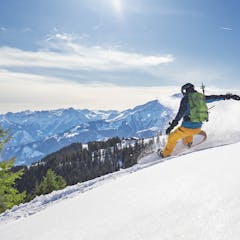
University of California, Davis

UC Davis is one of the world’s leading cross-disciplinary research and teaching institutions, located in Davis, California. The most academically comprehensive university on the West Coast, it is renowned for its programs in food and agriculture, the environmental sciences and sustainability, and veterinary medicine. Among its many accomplishments, it has helped develop the wine industry, pioneered new medical treatments and altered the art world. Part of the University of California system, UC Davis has 100+ majors, 10 colleges and professional schools, a health system, and research stations throughout California and beyond.
Links
Displaying 61 - 80 of 233 articles

Five articles on the meanings of hope and how to think about resilience, healing and even joy in the midst of this winter’s bleakness.

Students who are the first in their family to attend college view a college degree differently than children of college-educated parents, researchers find.

Research shows that people with more flow in their lives had a higher sense of well-being during the COVID-19 pandemic. Scientists are beginning to explore what happens in the brain during flow.

Adopted children face a slew of legal challenges in trying to obtain their original birth certificates. Lawmakers across the country are increasingly granting more access as a basic human right.

Has the summit delivered on its goals?

The Blob, a long-lasting mass of warm water, sat off the Pacific coast of North America for years, bringing new species to formerly cold waters. What allows some to survive while others fade away?

The Supreme Court ruled in 2020 that DACA, a policy that shields undocumented young immigrants from deportation, could continue. Now a Texas court says it can’t. An immigration lawyer explains.

A new study found that sales went down when salespeople conveyed emotion during their pitch – including expressions of happiness.

Roundup may be taking a beating in the US, where three juries have concluded that it gave plaintiffs cancer, but it’s still widely used around the globe.

When big investors like Blackrock get worried about their returns, they have the power and incentive to make fossil fuel companies take action.

A scholar of untraceable firearms explains what they are and why President Joe Biden’s administration is seeking to restrict their manufacture and use.

By merging genomics with classical epidemiology, researchers are able to predict new disease outbreaks based on which viral variants are on the rise.

Asian Americans are more likely to participate in remote learning than other racial groups, federal data show. To understand why, three experts weigh in.

The House passed a bill creating a path to citizenship for undocumented immigrants who came to the US as children. Here’s what you need to know about the Dreamers and DACA.

When a child loses mom or dad to deportation, the harm can be severe and lasting. New immigration bills in the House and Senate seek to avoid family separation and allow deported parents back home.

Cow burps and farts are no joke – they’re a big factor in climate change. A new study shows that daily seaweed supplements could tame this major methane source while saving ranchers money.

As more and more plastic trash permeates the Semakin banyak sampah plastik di lautan, serpihan plastik masuk ke dalam ikan dan kerang - dan berpotensi juga masuk ke manusia

Words matter, writes an immigration scholar. It is far easier to deny the humanity of an ‘alien’ than to do so for a ‘noncitizen.’

Cities have long resisted the public demand for street food vendors, but the pandemic may reverse those restrictions for good.

As more and more plastic trash permeates the oceans, fragments are making their way into fish and shellfish – and potentially into humans.
